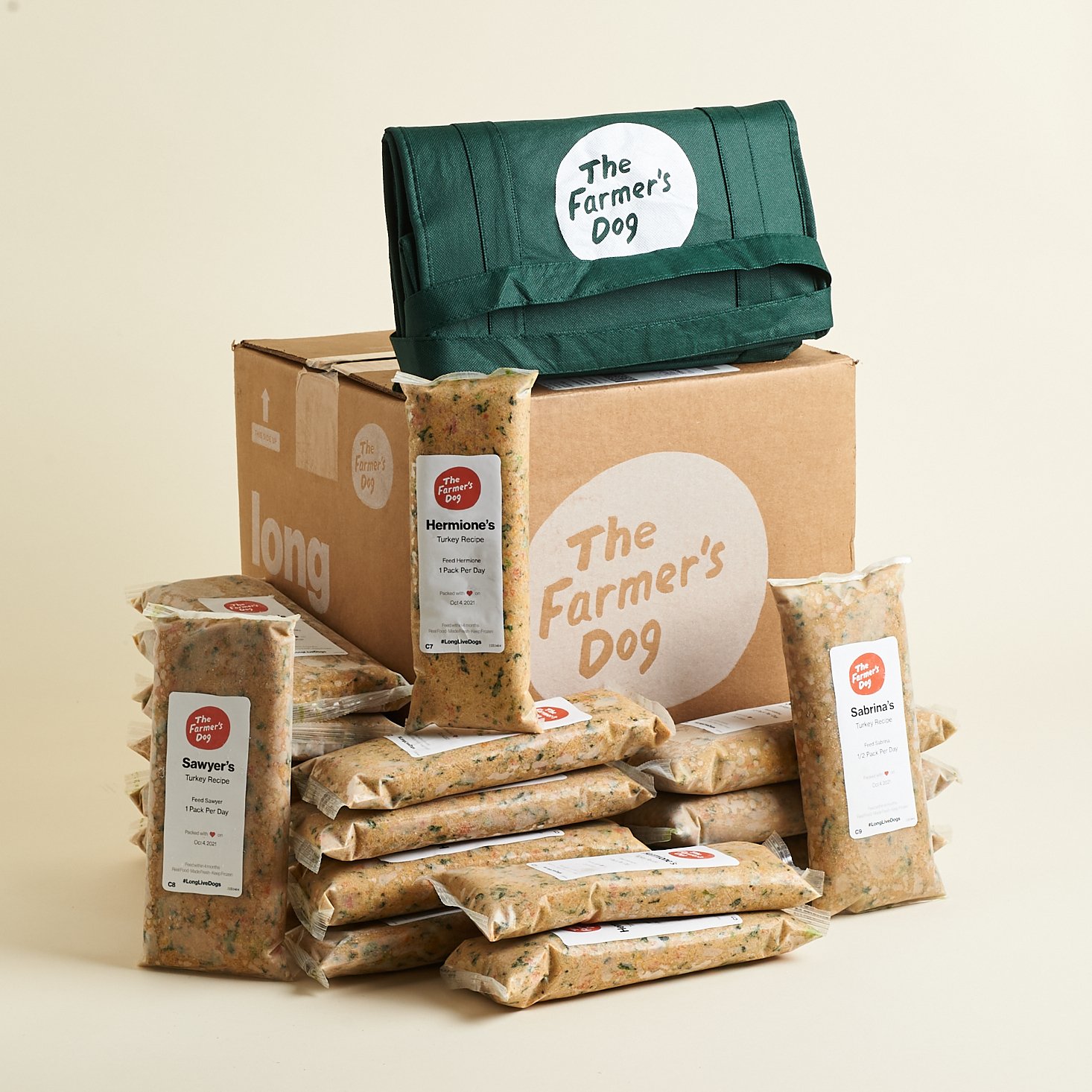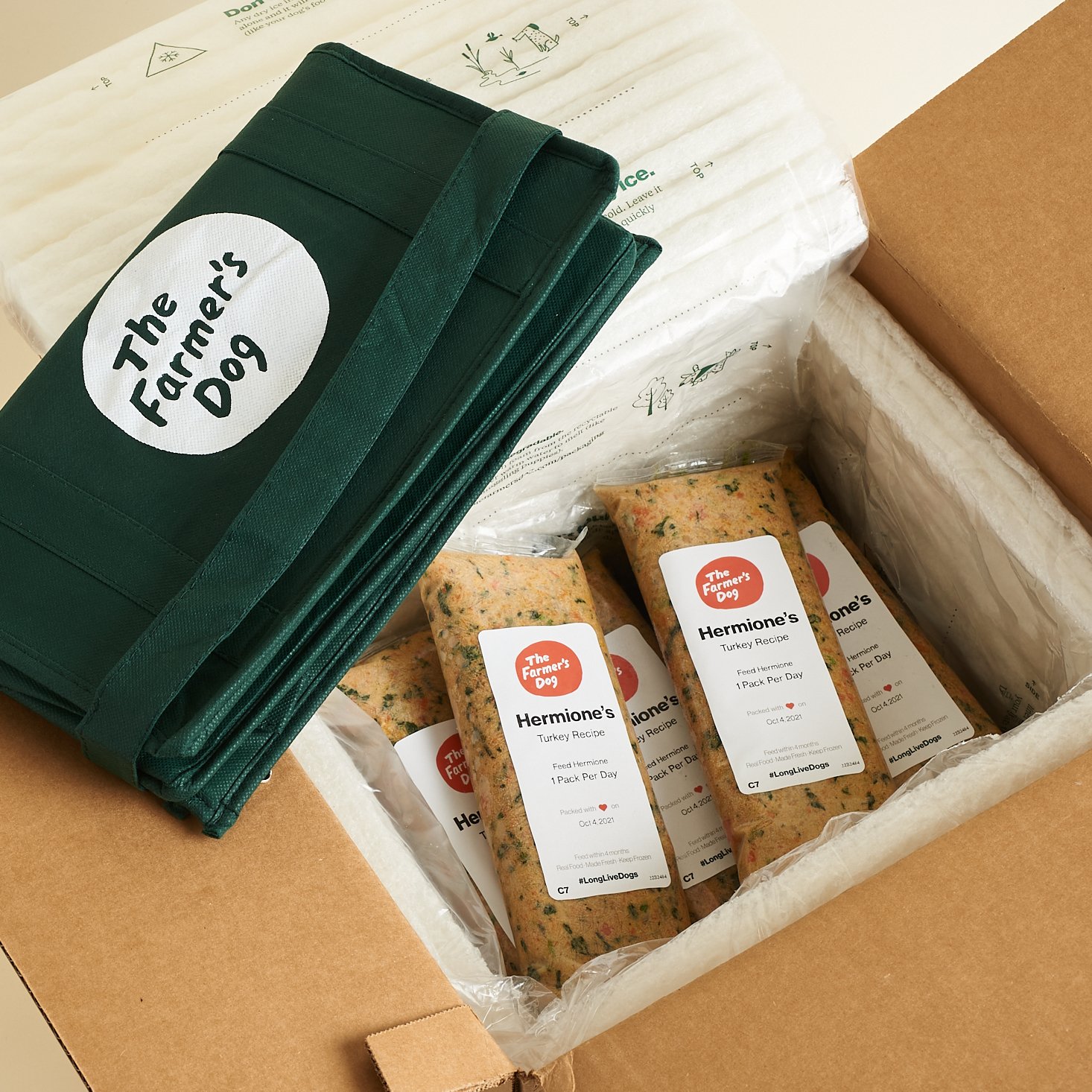The Farmer's Dog: A Heartwarming Tale Of Loyalty And Companionship
Let me tell ya somethin'—there’s no bond quite like the one between a farmer and their dog. The farmer's dog isn’t just an animal; it’s a partner, a protector, and a best friend. Imagine this: early mornings on the farm, boots crunchin' through dewy grass, and there’s always that wagging tail ready to join you every step of the way. That’s what makes the farmer's dog so special. They’re more than just pets—they’re family.
Nowadays, people talk about dogs in all sorts of ways—service dogs, therapy dogs, emotional support dogs—but when it comes to the farmer's dog, there's something extra magical. These pups aren’t just cute faces; they’re hardworking buddies who help out with chores, keep livestock safe, and bring joy to even the toughest days. So, if you’ve ever wondered what makes these canines so extraordinary, stick around because we’re diving deep into their world.
Before we dive headfirst into the nitty-gritty details, let’s set the stage. Whether you’re a city slicker or someone who grew up around barns and pastures, understanding the role of the farmer's dog is fascinating. This article will explore everything from their history, breeds commonly seen on farms, training tips, and even how modern technology is helping farmers care for their four-legged companions. Ready? Let’s go!
Table of Contents
- The Rich History of the Farmer's Dog
- Popular Breeds for Farm Work
- Key Roles of the Farmer's Dog
- Training Your Farmer's Dog
- Healthcare Tips for Farm Dogs
- How Technology Helps Farmers Care for Their Dogs
- Benefits of Having a Farmer's Dog
- Challenges Faced by Farmer's Dogs
- Adopting a Farmer's Dog
- Building a Community Around Farmer's Dogs
The Rich History of the Farmer's Dog
Back in the day, before tractors and modern machinery, the farmer's dog was indispensable. Farmers relied heavily on these loyal animals to herd sheep, guard livestock, and even pull carts. Historical records show that humans have been working alongside dogs for thousands of years, and this partnership has evolved over time. The ancient Egyptians, Greeks, and Romans all had their own versions of farm dogs, each bred for specific tasks.
Origins of Farm Dogs
Let’s rewind a bit. Dogs were domesticated thousands of years ago, and early humans quickly realized their potential as working partners. In Europe, breeds like the Border Collie and the Great Pyrenees were specifically developed to assist with farming activities. These dogs weren’t just chosen for their looks—they were bred for intelligence, endurance, and loyalty.
Fast forward to today, and while technology has made some aspects of farming easier, the need for a good farm dog hasn’t disappeared. In fact, many farmers still prefer the old-fashioned way—working side by side with their trusty canine companion.
Popular Breeds for Farm Work
Not all dogs are cut out for life on the farm. Some breeds thrive in the great outdoors, while others might find it too demanding. So, which breeds make the best farmer's dogs? Here’s a quick rundown:
- Border Collie – Known for their incredible intelligence and herding skills.
- Australian Shepherd – Versatile and energetic, perfect for various farm tasks.
- Great Pyrenees – Majestic guardians of livestock, especially sheep and goats.
- Akita – Powerful and protective, often used in colder climates.
- Boxer – Strong and agile, ideal for farm work and family protection.
Each breed brings something unique to the table, whether it’s herding cattle, guarding property, or simply providing companionship. Choosing the right breed depends on the specific needs of the farm and the farmer’s lifestyle.
Key Roles of the Farmer's Dog
What exactly does a farmer's dog do? Well, their roles are as diverse as the farms they work on. Here are some common responsibilities:
- Herding livestock – Keeping sheep, cows, and other animals in check.
- Guarding property – Protecting the farm from intruders and predators.
- Companionship – Providing emotional support to the farmer and family.
- Assisting with chores – Helping with tasks like carrying supplies or pulling loads.
It’s worth noting that not all farmer's dogs wear their work hats 24/7. Many of them double as beloved family pets, enjoying downtime with the farmer’s kids or lounging in the sun after a long day of work.
Training Your Farmer's Dog
Training a farmer's dog is crucial for ensuring they’re effective and safe on the job. Whether you’re teaching basic commands or advanced herding techniques, consistency is key. Here are some tips to get you started:
Basic Commands
Start with the basics: sit, stay, come, and heel. These commands form the foundation for more complex training later on. Use positive reinforcement, such as treats and praise, to encourage good behavior.
Advanced Herding Skills
If you’re looking to train a herding dog, patience is essential. Begin by introducing the dog to livestock in a controlled environment. Gradually increase the complexity of the tasks as the dog becomes more confident and skilled.
Remember, every dog learns at its own pace, so don’t rush the process. With time and dedication, your farmer's dog can become a valuable asset to your farm.
Healthcare Tips for Farm Dogs
Just like any other working animal, the farmer's dog needs proper care to stay healthy and happy. Regular vet checkups, a balanced diet, and plenty of exercise are all important components of their healthcare routine.
Preventive Care
Vaccinations, parasite prevention, and dental care are all part of keeping your farm dog in tip-top shape. Don’t forget about mental health too—dogs need mental stimulation just as much as physical exercise.
Some farmers also opt for alternative therapies, such as acupuncture or chiropractic care, to complement traditional veterinary medicine. It’s all about finding what works best for your individual dog.
How Technology Helps Farmers Care for Their Dogs
Believe it or not, technology is making waves in the world of farmer's dogs. From GPS tracking collars to smart feeding systems, there are plenty of tools available to help farmers monitor and care for their canine companions.
GPS Tracking
Losing a farm dog can be a nightmare, especially if they wander off into unfamiliar territory. GPS tracking collars allow farmers to keep tabs on their dogs’ whereabouts, ensuring they’re safe and sound.
Smart Feeding Systems
Automated feeders can ensure your dog gets the right amount of food at the right times, even when you’re busy with other farm duties. These systems can also track your dog’s eating habits, alerting you to any potential health issues.
Technology may not replace the bond between a farmer and their dog, but it sure can make life easier for both of them.
Benefits of Having a Farmer's Dog
There’s no denying the numerous benefits of having a farmer's dog. Beyond the practical advantages, there’s an emotional connection that’s hard to put into words. Here are just a few reasons why these dogs are so valuable:
- Increased productivity – Dogs can cover more ground and perform tasks faster than humans.
- Enhanced security – A well-trained guard dog can deter intruders and protect livestock.
- Companionship – Dogs provide emotional support and reduce stress for farmers.
And let’s not forget the joy that comes with sharing your life with a loyal companion. There’s nothing quite like coming home after a long day and being greeted by a wagging tail and happy bark.
Challenges Faced by Farmer's Dogs
Life on the farm isn’t easy, and the farmer's dog faces its fair share of challenges. From harsh weather conditions to physical strain, these dogs need to be tough to thrive in such an environment.
Weather Extremes
Whether it’s scorching heat or freezing cold, farm dogs often have to endure extreme weather. Providing adequate shelter and hydration is crucial to keeping them healthy and comfortable.
Physical Strain
Constant running, jumping, and working can take a toll on a dog’s body. Regular rest breaks and proper nutrition are essential to prevent injury and fatigue.
By addressing these challenges proactively, farmers can ensure their dogs remain happy and healthy for years to come.
Adopting a Farmer's Dog
If you’re thinking about adopting a farmer's dog, there are a few things to consider. First, assess your farm’s needs and choose a breed that fits those requirements. Then, look for reputable breeders or rescue organizations that specialize in working dogs.
Adopting a rescue dog can be especially rewarding. Many shelters have dogs with farm backgrounds who are eager to find new homes and return to their natural habitat. Just be prepared to invest time and effort into training and bonding with your new furry friend.
Building a Community Around Farmer's Dogs
Finally, don’t underestimate the power of community when it comes to farmer's dogs. Joining local farming groups or online forums can connect you with other farmers who share your passion for working dogs. You can exchange tips, ask for advice, and even organize events like herding trials or training workshops.
Building a supportive network not only benefits you but also strengthens the overall farming community. Together, we can celebrate the incredible contributions of the farmer's dog and ensure their legacy continues for generations to come.
Kesimpulan
There you have it—the ultimate guide to the farmer's dog. From their rich history to their modern-day roles, these incredible animals play a vital part in the farming world. Whether you’re a seasoned farmer or just starting out, there’s no denying the value of having a loyal canine companion by your side.
So, what’s next? If you’ve learned something new today, share this article with your friends and fellow farmers. Leave a comment below telling us about your own experiences with farmer's dogs. And most importantly, give your furry friend an extra pat on the head—they deserve it!

The Farmer's Dog Review HighQuality, Customizable Dog Food

The Farmer's Dog Review HighQuality, Customizable Dog Food

Local Pubs The Farmers Dog The Farmer's Dog